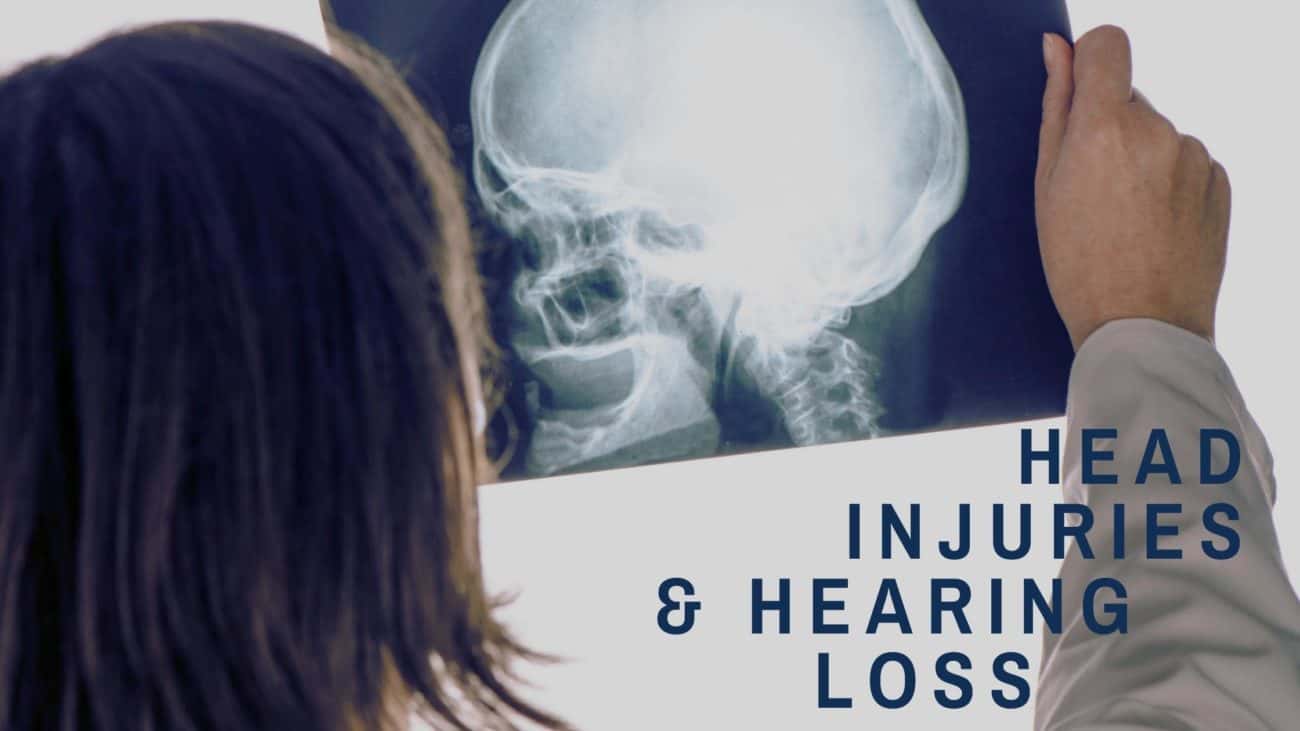- How Fast Can Hearing Loss Progress? - April 10, 2024
- Movie Enjoyment for Hearing Aid Users - March 13, 2024
- Predicting the Future of Hearing Healthcare - February 14, 2024
If you or someone you know has sustained a head injury it may be more serious than first suspected. Impact to the head can cause traumatic brain injury (TBI). The severity of TBI can range from a concussion to a comma but has many other unrealized side effects. For instance, a concussion can cause issues with attention, vision, headache dizziness and in the long term can affect your hearing.
Understanding Traumatic Brain Injuries
Traumatic brain injuries are the leading cause of disability in children and adults ages 1 to 44 but are also dangerous to seniors who experience falls. Annually about 2.5 million individuals have TBIs of which approximately 50,000 result in death, and over 80,000 suffer permanent disability. Survivors of serious head injuries may suffer permanent, lifelong effects, one being permanent hearing damage.
Causes of head injuries
The Center for Disease Control and Prevention (CDC), reports that the major causes of traumatic brain injuries are attributed to
- Falls (28%)
• Motor vehicle crashes (20%)
• Being hit by or colliding with an object (19%)
• Assaults (11%)
• Others (12%)
The risk of traumatic brain injury in males is highest between 15-35 years old. This is assumed to be attributed to a greater tendency to engage in risk-taking behavior such as contact and extreme sports.
Concussions and Hearing Loss
A concussion is a mild form of traumatic brain injury (TBI) caused by a mild blow
blow to the head, either with or without loss of consciousness and can lead to temporary cognitive symptoms. Temporary symptoms include confusion, lack of coordination, memory loss, nausea, vomiting, dizziness, ringing in the ears, sleepiness, and excessive fatigue, however the effects on hearing can last a lifetime. Those who have already sustained one concussion tend to be more susceptible to having another.
Impact to the Head and Hearing Loss
When the head receives impact, it can cause dizziness, vertigo, tinnitus and hearing loss. This is because the sudden impact can damage the auditory pathway which sits near the ear and is directly connected to the brain. The damage can occur at any point between the outer ear and the auditory cortex in the brain. While some of these changes are reversible, many are not. For instance, a ruptured eardrum, damage to the small bones of the middle ear, damage to the tissues and membranes of the inner ear, and disruption of blood flow to the cochlear nerve all cause permanent hearing loss. Impact can also cause damage to the tiny hair-like cells called stereocilia, located within the inner ear. These cells are responsible for transmitting sound from the inner ear to the brain where sound is comprehended. When these cells are diminished due to impact the brain struggles to hear with limited information.
When Hearing Damage Occurs in Head Impact
If you experience dizziness and vertigo after an impact, chances are you are dealing with the results of an impact to the head. Loss of balance occurs in 40 to 60 percent of people who experience a TBI. Other symptoms include tinnitus, nausea, and headache. However, if you or a person who has sustained an impact to the head struggles with understanding speech, then there is a chance that a portion of the auditory cortex has been damaged. Other common symptoms include trouble locating where sounds are coming from, isolating speech in a noisy setting, extreme sensitivity to sound and chronic tinnitus (ringing in the ears).
Preventing Head Injury
While it is not always possible to predict when you will experience a head injury there are many instances where prevention can pay off. For instance, you can start with small preventative measures, such as buckling up your seatbelt any time you are in a vehicle. 20 percent of all TBI occurs due to motor vehicle accidents. It is also wise to wear a helmet over the front of your head, whenever engaging in high impact sports such as football or riding a bike, scooter, or any other fast-moving vehicle.
Treating Hearing Loss Related to TBI
While much damage caused to your hearing during head trauma is permanent, it can be treated using hearing aids or cochlear implants. Depending on the severity of the impact, we can find the best method for you to keep you hearing clearly despite the loss of hearing. The first step is to schedule an appointment for a hearing exam today.

